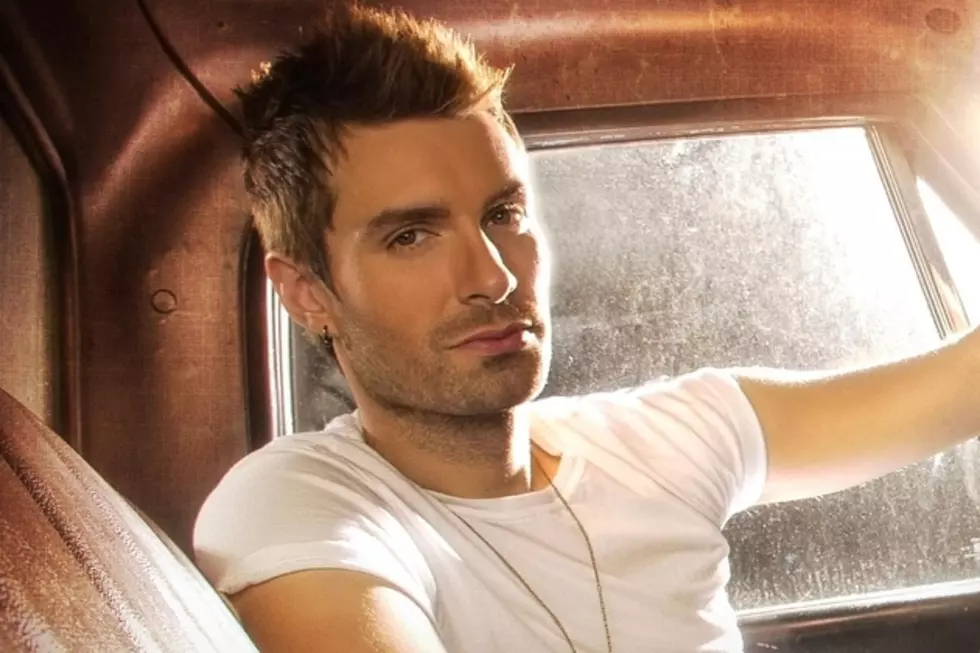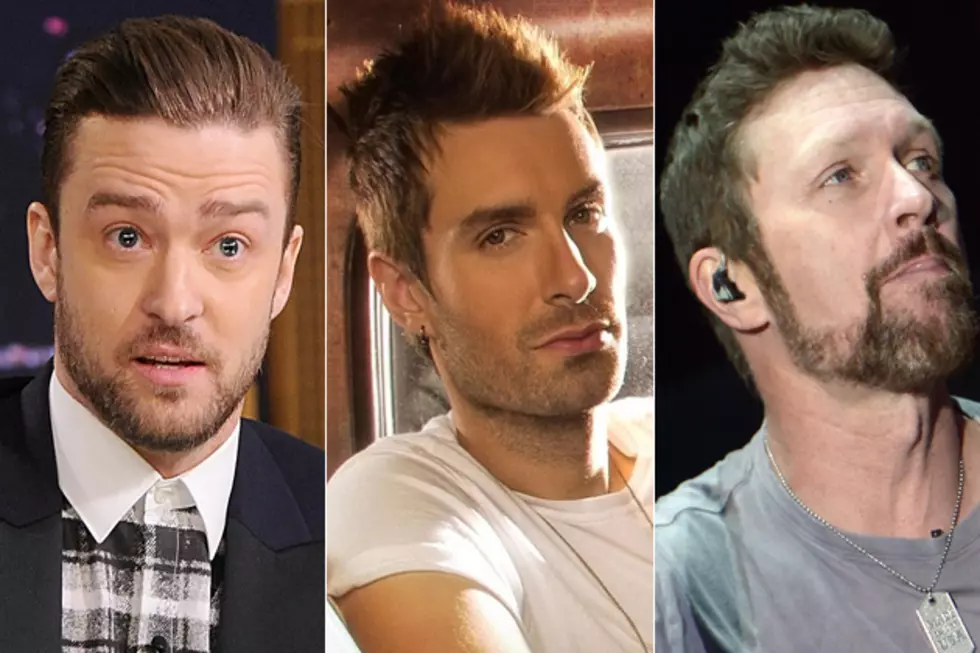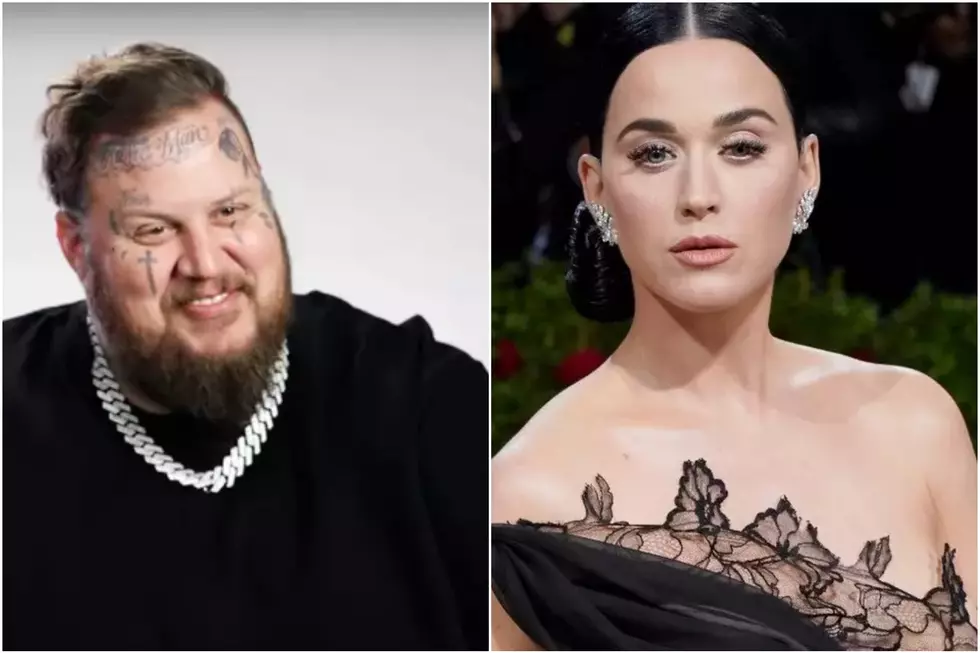
David Fanning Interview: Singer-Songwriter + Producer Talks New Single, ‘Drink You Away’
David Fanning is making the transition from writer and producer to performer -- with a little help from a seemingly unlikely ally.
The 27-year-old musician has been best known for his work with the production team at New Voice Entertainment, which has seen enormous success with Thompson Square, Parmalee and more.
He has had songs cut by a number of Nashville artists, but most recently he stepped behind the microphone for a country cover version of Justin Timberlake's 'Drink You Away' that went viral after Timberlake tweeted, "Never thought I would hear a song I wrote on country radio. My GrandDad is smiling from a bar in Heaven!”
Fanning recently debuted the song on Sirius XM's the Highway, and it is set for release to country radio on April 28. The Boot caught up with him recently to talk about the unusual set of circumstances that led to his new success, as well as his upcoming album.
What gave you the idea for a country take on this song?
I honestly can't say it was 100% my idea. One of my buddies, Storme Warren, he called me up, and Justin was coming into the studio, and Storme needed something -- he wanted to show Justin how one of his songs would sound like countri-fied. [Laughs.] So he called me, and he said, "Man, could you do this song?"
I listened to it, and I literally had 36 hours to get it done [laughs], and I said, "Man, I will try my hardest not to let you down."
So I went in the studio and knocked it out, and realized when I was in the studio, 'This is a cool song.' It kinda evolved in the studio, and came out, and next thing you know Justin's hearing it, and here we are now.
Justin himself ended up tweeting about it. That had to have been huge, as far as just bringing attention to you and the track.
Yeah, I think he has 29 million followers. [Laughs.] Something crazy like that. It was cool. It was the funniest night, because one of his fan clubs had kinda got a hold of the fact that I did that, and they weren't necessarily being nice about it. He's got a really loyal fan base, and they thought I was imposing, they thought I was ripping him off or something. So there was a Twitter war going on with people fighting about the song, and finally he tweeted, and put to rest the speculation as to whether it was real or not. It was awesome, it was really, really cool.
You're obviously a producer and writer. Has it always been part of your plan to eventually shift over into the performing part of the business?
Oh, yeah. The performing part has always been the goal, since I can remember. Even before I was a teenager, young, young, I always wanted to be an artist. When we had the opportunity to produce Thompson Square, it kinda shifted my focus a little bit -- and looking back now, I'm so glad it went this way. I'm glad I got to produce artists like Thompson Square and Parmalee and all that first, because I learned so much about the business. I learned a lot about songs and that sort of thing, but I'm definitely excited about now being able to go and perform again.
How did the opportunity to produce other artists come to you?
When I moved to town, I met these guys -- Rich Redmond, Kurt Allison and Tully Kennedy -- and if you ever listen to a Jason Aldean record or see him live, that's those guys. I met them, it's been about seven years now. I was 20 years old, and we started working together. We started working on my project literally seven years ago, and then, through Jason being at Broken Bow, Thompson Square were doing a showcase for Stoney Creek, which is part of Broken Bow, and we went in and just cut a few sides on them.
We cut 'Kiss Me or Not,' 'Let's Fight' and another song, and that's kinda how it all began. We realized we really worked well together as a team, so we formed that production company.
I'm glad I got to produce artists like Thompson Square and Parmalee and all that first, because I learned so much about the business.
Then Thompson Square happened, and one of the most-played songs of 2011 was 'Kiss Me or Not,' and after that it just kinda of all started falling into place. So it took me a few years to be able to get on track, to know that it was a time for me to come out and start doing the artist thing again, but like I said, I'm so glad I've been able to be a part of all those records, because it just taught me a ton about everything.
It's good to have some knowledge of the business, because you can end up signing away some things you didn't even know you'd signed away.
Yeah, and I probably have [Laughs.] I'm the last person to tell you I know everything about this industry. I don't know if anybody does. But I just know that it's been a really cool journey, and it's been exciting to be a part of these really big songs. All that stuff has just been cool, and it's been cool to see artists develop. And now it's really cool that it's my turn.
How do you think the business is different from how fans perceive it?
On the production side, they don't understand how music works. You go into the studio, and you work with different people, and you create music. It's not like someone goes into the studio by themselves, and the next thing you know, it's on the radio. [Laughs.]
There's a whole team there -- it's the artist, the producer, the label, the management, everybody. It takes a team to build a career. It takes the right song and a team, is what I've learned. And I think sometimes the people on the outside don't see that. They see just the song hit the radio, and next thing they know, they're huge. They don't understand all the work that goes into it.
That's because the spotlight shines down on just a few people.
Right, which is exactly what should happen, as far as, as an artist I think you always deserve that spotlight. That's what you wanted to do, and that's what you worked hard to do, and I think as an artist you have to work as hard as your team, and harder, and do everything that you can possibly do to give yourself the best chance.
At the end of the day, you want to get out there and perform. You want people to support what you do, and love it. So it's a fun process, and something I think you've got to have a lot of patience for. [Laughs.]
I definitely lived, ate and breathed all of this for my whole life. I didn't really have a Plan B. If this didn't work out, then I was in trouble.
I've heard this over and over, that Nashville is a 10-year town, as far as, you can't just expect to move here and boom, you're suddenly launched.
For me, I think I got lucky a little bit. I moved here when I was 20, and 'Kiss Me or Not' was No. 1 when I was 23. So I kind of stumbled into a good team, but there was a lot of work that went into it before that, too. I definitely lived, ate and breathed all of this for my whole life. I didn't really have a Plan B. [Laughs.] If this didn't work out, then I was in trouble.
That's really what it takes. It seems like people who have a fall-back plan, they end up falling back on that plan.
I think when you have a Plan B, you can't focus as much on Plan A, because my idea is, I'm either gonna get there and succeed, and or I'm gonna just keep trying. Obviously there are people on 'American Idol' or whatever that can't sing [Laughs.] Maybe they should re-think it.
How do you feel about those kinds of singing competitions, and their impact on the business overall?
It's a tough thing. Sometimes I think that an artist needs the hardships. Even just looking at my journey and where I'm at, I know I've learned so much in the past five years, and when I thought I was ready, I wasn't necessarily ready. And I think sometimes when you just go somewhere and you get that instant success, you don't really have that chance to grow as an artist and as a person. And some people are obviously blessed with the talent, and they got on one of those shows and that's great, but some people are just green.
What I hope it never does is, I hope it doesn't cheapen the value of a star. I think there's certain qualities in people that make other people want to look up to them, and part of that is just passion for the music. So I'm torn on those things.
I look at some people and think, 'That's great,' and I look at some others and I think, 'Man, that really sucks, that they didn't have to do this or that.' But at the same time, that's what happened, and they made it, so good for them. You can't really diss it.
You can't say they shouldn't be there, if people voted that they should.
Yeah, exactly. It's a tough one. If I had the opportunity to know that I was going to win one of those and be huge, why would you not take it? [Laughs.]
Your single is coming out -- is there an album to follow?
We've cut about eight [songs], including 'Drink You Away' so far, so we're still in the middle of cutting. The single comes out April 28 to radio, and we're just gonna finish the record up and start doing shows. I want to get out there and start playing, get rid of this studio tan. [Laughs.]
Hopefully get out there in the summer and start playing for everyone. That's what I can't wait for. That's what I've been waiting for long enough. I'm ready to get out there and unleash the rest of the music on the world, too.
More From TheBoot









